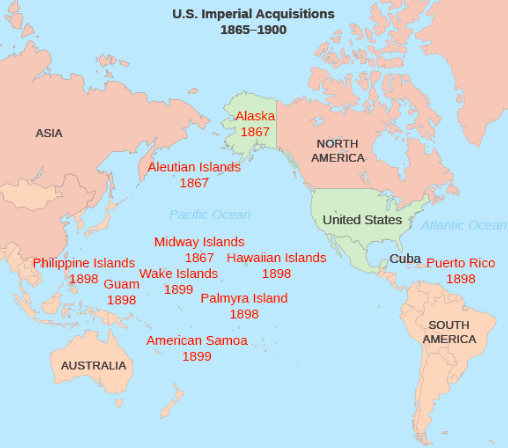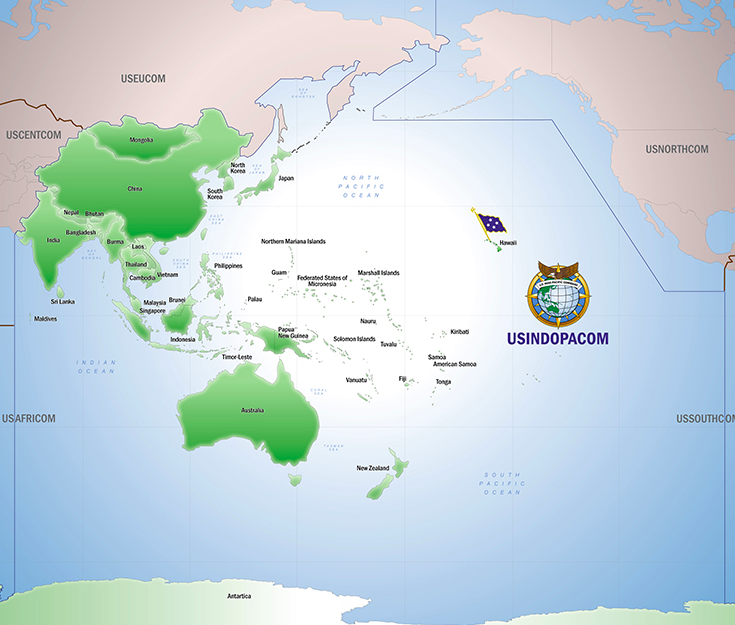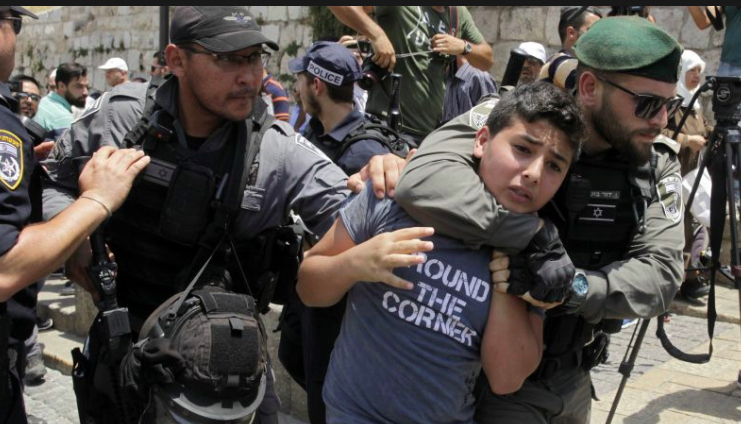
By Ann Wright, November 15, 2019
The settler-colonial history of the United States is not discussed by those in the U.S. government. However, in the lexicon of American studies, settler-colonialism is a major topic, and particularly for historians in the occupied lands of Hawai’i.
The engagement of the United States in longstanding wars has increased the militarization of U.S. society. U.S. diplomacy has been militarized as have domestic law enforcement agencies, jails, and prisons. Militarization perpetuates ethnic and gender violence on a global scale while jeopardizing indigenous-led struggles toward a demilitarized Pacific.
I was in the U.S. Army/Army Reserves for 29 years and retired as a Colonel. I was also a U.S. diplomat for 16 years and served in U.S. embassies in Nicaragua, Grenada, Somalia, Uzbekistan, Kyrgyzstan, Sierra Leone, Micronesia, Afghanistan and Mongolia. I was on the small U.S. diplomatic team that reopened the U.S. Embassy in Kabul, Afghanistan in December 2001. I resigned from the U.S, government in March 2003 in opposition to the U.S. war on Iraq.
I have seen first-hand how U.S. diplomacy, our country’s relationships with other countries, has been militarized. U.S. diplomacy is the diplomacy of a settler-colonial nation from the beginning of its history with the displacement of indigenous native populations from the East to the West Coasts from the North to the South as the European settlers moved across the North American continent.
U.S. settler-colonial land-grabs continued with land purchases, annexation, and theft of land through the prizes of war to obtain extra-continental lands of Alaska, Hawaii, Puerto Rico, Guam, American Samoa, U.S. Virgin Islands, Northern Marianas and for various periods of time the Philippines, Cuba, Nicaragua. Perniciously, U.S. military installations or bases are named after the military officials who were instrumental in taking Indigenous lands by force- Fort Knox, Fort Bragg, Fort Steward, Fort Sill, Fort Polk, Fort Jackson.
U.S. Military’s “Shadow Diplomacy”
The U.S. military has a large “shadow diplomacy” organization whose members are on the staff on every military unit above Brigade level. They staff the J5 or political-military/international relations office of each of the five geographic unified commands of the U.S. military. Each J5 office will have 10-15 military officers with at least Master’s degrees in politico-military affairs, area studies and languages of the region of their specialty.
One of those commands is the Indo-Pacific command, located in Honolulu, Hawaii. The Indo-Pacific command covers all of the Pacific and Asia west of Hawaii all the way to India—36 countries, including the two largest populations in the world-India and China. It covers half the world’s population and 52% of the earth’s surface and 5 of the y U.S. collective defense treaties.

These specially trained military “diplomats” are called Foreign Area Specialists. Not only do they have assignments in major military commands, they are located in virtually every U.S. Embassy in every country. Additionally, these military international specialists are routinely assigned to other agencies of the government, including the National Security Council, the State Department, National Security Agency, the Central Intelligence Agency, Treasury Department, Homeland Security. They also have assignments with universities, corporations and international organizations including the United Nations. Foreign Area Officers are routinely assigned to be liaison officers with the militaries of other countries.
Some estimate that the U.S. military has more Foreign Area Specialists than the U.S. Department of State has U.S. diplomats. They influence U.S. policies on weapons sales, training of host country militaries, recruitment of countries to join “coalitions of the willing” for whichever military action the U.S. administration decides to implement whether it is the war on Afghanistan in recruitment of NATO countries, the war on Iraq, the actions against Libya, the government of Syria, ISIS and the assassin drone operations in Afghanistan, Yemen, Somalia, Mali, Niger.
800 U.S. Military Bases in Other Countries
The U.S. has over 800 military bases in other people’s countries, many which have remained over 75 years since the end of World War II including 174 in Germany, 113 in Japan (mostly on the occupied island of Okinawa, the Rykuyuu Kingdom) and 83 in South Korea.

Here in the land of the occupied Kingdom of Hawai’i, there are five major U.S. military bases on Oah’u. Pohakuloa on Big Island of Hawai’i is the largest U.S. military war practice bombing area in the U.S.. The Pacific Missile Range on Kauai is a missile launch facility for Aegis and THAAD missiles. A huge military computer facility is located on Maui. Due to citizen activism, the 50 years of bombing the island of Ko’olawee has ended. Rim of the Pacific or RIMPAC, the largest international naval war exercises in the world, are held in Hawaiian waters every other year with over 30 nations, 50 ships, 250 aircraft and 25,000 military personnel.
On the U.S. occupied island of Guam, the U.S. has three major military bases and the recent deployment of U.S. Marines to Guam has increased the population of the island by 30 percent without an increase in infrastructure to accommodate such a rapid increase in population. Citizens are opposing a U.S. military bombing range on the island of Tinian.
Citizens on Okinawa have strongly opposed the construction of a U.S. military runway into Oura Bay which has destroyed corals and marine life.
Citizens on Jeju Island, South Korea have opposed construction of a large naval base that is used by the U.S. Navy, the deployment of the THAAD missile system in South Korea has drawn large citizen protest. The largest U.S. military base outside the U.S. is Camp Humphries in South Korea which was built despite massive citizen protests.
Militarization of Law Enforcement Agencies at all Levels
Not only does the U.S. military occupy indigenous lands, but normalization of extensive militarism occupies the minds of our society. Domestic police forces have militarized their training. The U.S. military has made available to local police forces excess military equipment such as armored personnel carrier, sound machines, helmets, vests, rifles.
Military rules of engagement and tactics are used by many police forces in breaking into homes, approaching persons suspected of criminal activities, shooting first and asking questions later. Now it is routine following police shooting of an unarmed civilian, to inquire whether the police officer has been in the U.S. military, when, where and what dates the person was in the military as the police officer may have used military rules of engagement instead of police regulations which in shooting the unarmed civilian.
Preferential status is given to military veterans who apply to become police, although after many police shootings of unarmed civilians as happens frequently in military contact with civilians, many police organizations are requiring additional mental testing for combat veterans during the recruitment process. A veteran with post-traumatic stress (PTS) and particularly those receiving a medical rating for PTS from the Veterans Administration should be eliminated from police recruitment due to emotional and mental challenges.
U.S. military operation of prisons in Afghanistan, Iraq, Guantanamo and black sites in Europe, South East Asia and locations still unknown to the public have brought into U.S. civilian prisons a military approach toward prisoners, particularly those prisoners who are reacting negatively to prison conditions and prison discipline.
The human rights abuses orchestrated by U.S. military personnel at the U.S. military prison in Abu Ghraib, Iraq and in Bagram, Afghanistan and in the still operating U.S. military prison in Guantanamo, Cuba are replicated in civilian prisons in the U.S.
Civilian Oversight of County Jails
I work with an organization called the Texas Jail Project which is a civilian advocacy group that assists families of incarcerated persons in the 281 county jails in Texas. The Texas Jail Project was created when a friend, an environmental justice activist, was jailed for 120 days in the Victoria County, Texas jail for bringing attention to the 30 year old continuous daily plastic pellet dump by a chemical company into Alamo Bay where she was a fisherwoman. After roadside protests, hunger strikes, letter to the editors, to bring attention to the pollution, she decided to try to get publicity about the pollution by climbing a tower in the chemical company’s plant and chaining herself to the top of the tower, 150 feet off the ground. She was found guilty of trespass and sentenced to 120 days in the county jail.
While she was in jail, she wrote about the conditions in the jail and decided she would work on county jail reform when she got out We as her friends have worked to investigate horrific stories of treatment of prisoners, terrible conditions inside the jails including the treatment of mentality disturbed and of pregnant women. The Texas Jail Project began attending the quarterly meeting of the Texas Jail commission, one of the very few groups that had ever sat in on meetings of the board that determines policies and orders investigations. The project spearheaded the lobbying of the Texas State legislature to pass a law that a woman in labor must not be shackled to a hospital bed when she gives birth. The Texas Jail Project also gives each month a “Hell Hole of the Month” designation to some county jail that has a record of poor treatment of prisoners.
The county jails of Texas have one of the highest rates of inmate death by suicide or homicide. As many jail guards are former military, the Texas Jail Project reminds families of victims of violence inside jails to immediately question the background of the jail guard force and ask if guards were in the U.S. military and particularly if they were in combat or were guards in U.S. military or CIA prisons in Afghanistan, Iraq or Cuba. If any of the county jail guards had worked in U.S. prisons in those countries, then the presumption should be that the tactics the guards used in U.S. prisons probably were carried over into the civilian jails and prison in the U.S.
U.S. military veterans receive preferential status in applying for civilian guard positions at the local, state and national levels. The Texas Jail Project advocates for former U.S. military who apply for Texas county police and jail guard positions to undergo special psychological testing to attempt to determine if they evidence residual post traumatic stress from military experiences that could be carried over into abuse behavior toward those incarcerated.
Settler-Colonial Nation Israel Gives U.S. Tips on How to Attempt to Control Occupied Lands
The military mentality of our federal government is evidenced by the conditions in detention/prison facilities along the U.S.-Mexico border and detention facilities for migrants in many states.
The militarization of the U.S. borders with fencing, surveillance drones and checkpoints has been modeled after another colonial settler state-Israel, which has one of the most militarized societies in the world. Israeli tactics, training and equipment used on Palestinians in the West Bank and Gaza have been purchased almost wholesale by the U.S. federal, state and local governments for not only the border areas but also in cities.

Over 150 city police forces send police to Israel for observing methods Israelis use to “control” the Palestinian populations in the West Bank and Palestinian Israeli citizens in Israel itself. U.S. police and federal agents observe Israeli border operations on the open-air prison the Israeli government has created to blockade Gaza by land and sea. U.S. officials watch Israeli snipers execute Palestinians from berm positions at the border and observe remotely controlled machine guns that are fired at Palestinians.

Under the watchful eye of U.S. police and military, over 300 Palestinians in Gaza have been executed by Israeli snipers in the past 18 months and over 16,000 Palestinians have been wounded by Israeli gunfire, many targeted with explosive bullets in the legs to ensure the legs would have to be amputated, thereby making the life of the target difficult for himself, his family and the community.
U.S. as a Settler-Colonial Nation
The U.S. was a settler-colonial nation from the beginning of its history enforced by military actions against indigenous populations on the continental U.S. then moving to an international colonial-settler nation by annexation and war.
As most recently seen in the U.S. wars on Afghanistan and Iraq and in Syria, the colonial-settler approach to forcefully taking lands of others is tragically alive and well.
Inside the U.S. the largest prison populations in the world continue to be terrorized by U.S. military tactics and immigrants and refugees have their human and civil rights violated by a settler-colonial United States government.
Time to End the Settler-Colonial Approach
It is past-time for the U.S. to end its settler-colonial approach to populations both domestically and internationally but this will happen only when government officials, as well as citizens, recognize the history of the U.S. for what it is and with purposeful intent attempt to change their interactions with indigenous populations.
About the Author: Ann Wright served 29 years in the US Army/Army Reserves and retired as a Colonel. As a US diplomat, she served 16 years in US Embassies in Nicaragua, Grenada, Somalia, Uzbekistan, Kyrgyzstan, Sierra Leone, Federated States of Micronesia, Afghanistan and Mongolia. She resigned from the US government in 2003 in opposition to the war on Iraq. She is the co-author of “Dissent: Voices of Conscience.”









One Response
colonialism must end!